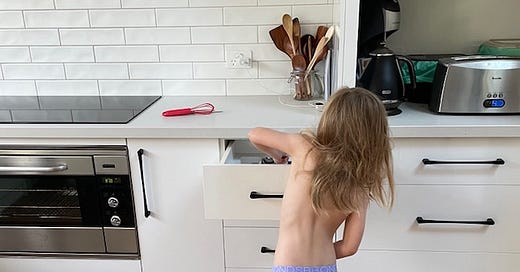12 Ways to Immediately Build Independence In Your Child: A Parenting Masterclass.
Start building autonomy and self-reliance in your kids today.
Photo taken by author.
Parents know that developing independence in their child is important but don’t know how to start.
I’ll make the process easy.
If you want to build genuine autonomy and independence in your kids, start using the language of independence.
Change and growth in families begins with shared language - that is, words and terms that everyone in the family understands and hears often.
This masterclass article includes 12 examples of independence-building language and covers the big-picture principle behind each.
Let’s start with the big one:
1. “Never regularly do for a child the things a child can do for him or herself.”
Goal: Independence
This parenting-for-independence manifesto is a philosophy that guides many teachers and parents today.
In effect, this sentence means that we give children the skills and competencies to look after themselves physically and emotionally wherever possible.
Independence-building is easy to say, but hard to do. It requires patience, time, and teaching from parents. And a recognition, that it may be eaisert to do thing for kids in the short-term, but keeping them dependent on you does them no favours.
It’s a worthy guiding principle that leads to self-sufficiency in children and, ultimately, redundancy as parents.
2. “Is this something you can do?”
Goal: Self-help
Independence takes many forms, but the most common is the development of self-help skills.
The confidence, pride, and, for most, sheer pleasure that kids derive from doing the simple things for themselves, such as a toddler tying his shoelaces or making their lunch, is immeasurable.
Yet it is so quickly denied if you see it as a job to do everything for children.
Independence begins at home with the development of self-help skills.
3. “Have you checked the help roster today?”
Goal: Contribution
A great way to develop a sense of independence is to give kids opportunities to help at home.
There is no need to overburden children with jobs. A sensible allocation of chores according to their age and study requirements will help you immensely and provide fantastic training for them.
It also builds accountability, resilience and a work ethic, highly valued characteristics for continued success at school and later in life.




